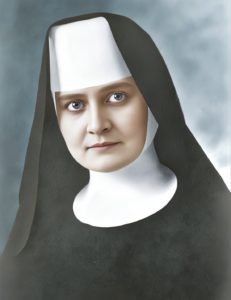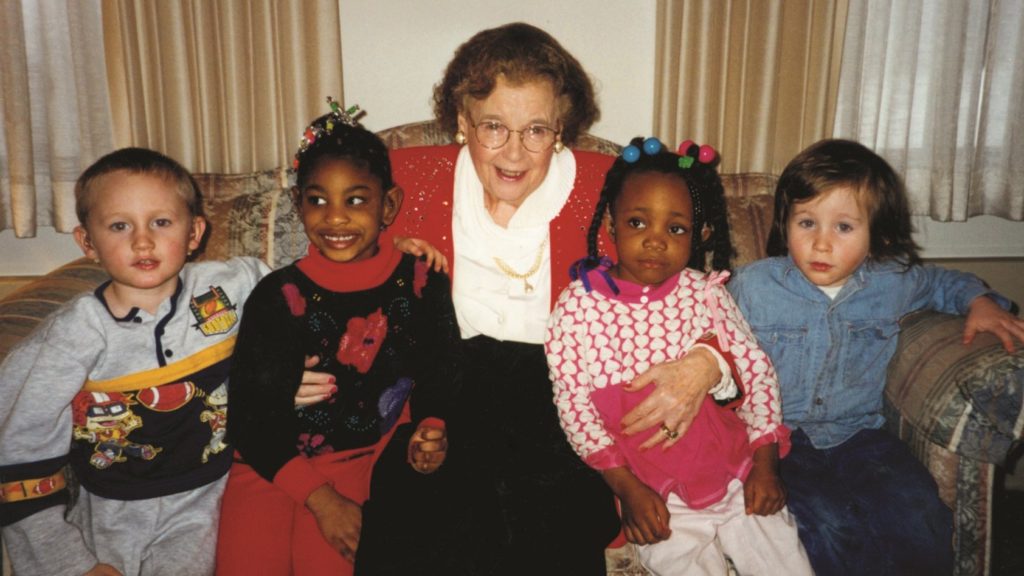The United States Conference of Catholic Bishops (USCCB) at its fall 2024 plenary assembly voted on Wednesday to advance the canonization causes of two faithful American women: Benedictine Sister Annella Zervas and Servant of God Gertrude Agnes Barber.
The bishops voted overwhelmingly in favor of advancing the causes of both Zervas and Barber following presentations on their behalf by Bishop Andrew Cozzens of the Diocese of Crookston, Minnesota, and Bishop Edward Lohse of Kalamazoo, Michigan, the latter of whom appeared on behalf of Bishop Lawrence Persico of Barber’s native Erie, Pennsylvania.
The assembly cast a 206-7 vote in favor of Zervas and a 205-6 vote in favor of Barber, a laywoman, teacher, and special-needs advocate.

Sister Zervas: Eucharistic devotion, entrusting suffering to God
“[Zervas’] Catholic faith, courage, and complete surrender to God offer us an extraordinary example of wholeness,” Cozzens told the assembly during his presentation.
Though she was born in Morehead, Minnesota, a city in the Diocese of Crookston, the influence of Zervas “has spread beyond Minnesota,” Cozzens said.
According to the Minnesota bishop, Zervas fostered early devotion to the Eucharist as a young girl and, “drawn to frequent Communion,” would often walk to daily Mass — even during the cold winter months in northern Minnesota.
Zervas’ desire for Christ continued and deepened as a religious sister, where she was known to consider the Eucharist as “the most important thing of her day.”
Cozzens noted in particular Zervas’ conviction of Christ’s role in drawing people to their life’s purpose. “She often craved that people would not miss their vocation,” said Cozzens, who described the Benedictine religious sister as “a special interceder.”
Zervas died at the age of 26 after battling a debilitating and painful skin disease. Cozzens highlighted her embrace of suffering as an example, telling the assembly: “Sister Annella knew Our Lord was with her in her suffering, and she lived this truth deeply.”
The nun’s story has since served as an inspiration to many people who have faced trials and suffering. “Stories have been shared with us,” the bishop said, “including recovery from the wounds of abortion, addiction, severe illness, [and] the pain of suicidal thoughts.”
“Her intercession has reportedly healed many people, and she’s reportedly appeared to persons in visions, always extending God’s confidence and peace,” he added, concluding that Zervas’ life “reminds us what God and the Church desire of us ... In this way, Sister Annella is a true teacher of our Catholic faith, witnessing that each person, regardless of their struggle, has great dignity and is created for intimacy with God.”
Gertrude Agnes Barber: A servant of God for the most vulnerable
“Before her death in the year 2000, [Barber] was well known in Pennsylvania and in some circles throughout the United States for her advocacy on behalf of children and adults with intellectual disabilities,” Lohse, former vicar general of the Erie Diocese, said at the assembly.
Born Sept. 16, 1911, and raised Catholic by Irish immigrant parents, Barber began her career as an educator, school psychologist, and administrator in the Erie public school system.
During this time, Lohse said, Barber “recognized God’s call for her life” was to serve children and adults with special needs.
Barber became deeply convicted of this mission while serving as a school psychologist, when she was instructed to “assess children with special needs and then explain to their parents that [they] had to be withdrawn [from school].”
Witnessing the “agony” on these parents’ faces after discovering that their children would no longer be able to access education — and either be forced to remain at home or in a distant facility — Barber “was determined to find another way.”
In 1952, Barber began teaching classes for children with disabilities in a room at the local YMCA. Nearly 20 years later, in 1971, she founded the Dr. Gertrude A. Barber Center and expanded her mission to include access to services for special-needs individuals from early infant intervention therapies to schooling for children of all ages, adult training, and job placement, and a retirement center.
“Those who worked closely with Dr. Barber were struck by her kindness, determination, humility, piety, and strength of character,” Lohse told the assembly. “Her spirituality was simple. She saw all people as children of God and sought to treat them with the dignity they deserve.”
The organization she founded, now called the Barber National Institute, employs approximately 3,000 people and serves more than 6,000 children and adults with special needs across the state of Pennsylvania.
“Dr. Barber’s example challenges us to love these individuals with the love of God himself,” Lohse said.
“Her teachings inspire us to recognize the dignity and beauty of those who are most vulnerable among us,” the bishop added, “and to recognize the presence of Christ in them, calling us to put into action the Lord’s own words, ‘whatsoever you do to the least of these little ones you do to me.’”

